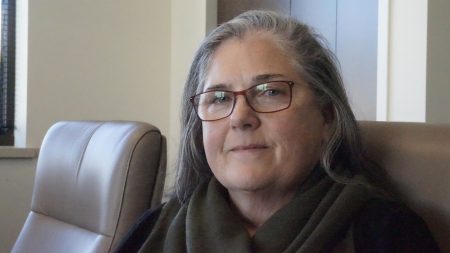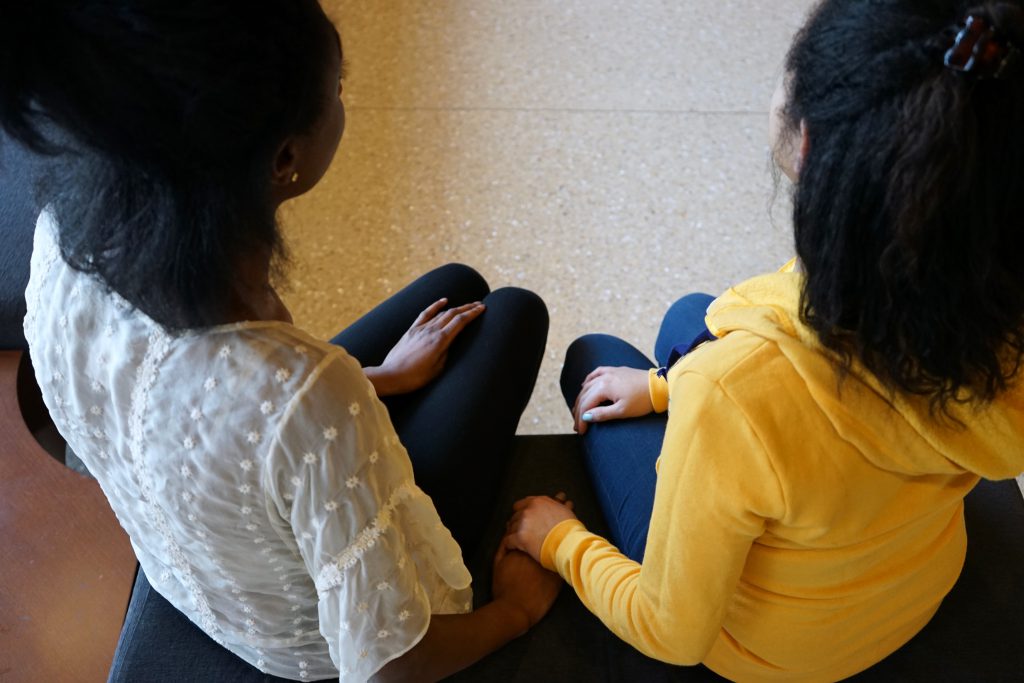Advocate Urge Victims To Report Sexual Assaults
Local groups like Sojourner Center say less than 10% of victims report assaults.
While the furor over the sexual assault accusations against Supreme Court Justice Brett Kavanaugh has quieted down, local sexual assault resource centers are urging victims of sexual violence to seek help.
Carmen Pitre, executive director of Sojourner Family Peace Center, said only an estimated 8-10 percent of victims come forward about their sexual assault. Survivors of sexual assault often internalize their experience, negatively affecting their ability to process certain emotions and relationships.
Sexual assault victims also tend to experience repeat assaults once they have been assaulted the first time, Pitre said. She also said not everyone wants medical treatment or forensics exams, such as rape kits. Rather, they want someone to listen to them and help them emotionally process their encounter.
“If I didn’t fully deal with that pain, it is walking with me in my adult life,” Pitre said. “It’s impacting everything about who I am until I’m given an opportunity to heal. … It’s this layering of hurt and pain … that people have just lived through and lived with.”
Pitre said sexual assault victim advocates at Sojourner reported an increase in calls during the Kavanaugh hearings. She said her friends and family were affected by the hearing because it brought up older memories.

Carmen Pitre, executive director of Sojourner Family Peace Center, said the center’s victim advocates have reported increased calls in the past month. Photo by Grace Connatser/NNS.
According to Nicky Glaser, manager of Aurora Healing and Advocacy Services at Aurora Sinai Medical Center, “People who call our hotline might be sharing something that recently happened and they’re looking to get more information, or they’re triggered by something. Or we have folks who, after not having ever disclosed … it’s been years, and they might be ready to delve into it more.”
She said the number of calls the center’s 24-hour hotline receives has at least doubled within the past month. “On a typical day, we might get one or two crisis-oriented calls,” Glaser said. “With the conversation on sexual violence at the national front, that number has increased to a minimum of three to four (calls) each day.”
The increase coincided with the spotlight on sexual assault after Dr. Christine Blasey Ford’s allegations against Kavanaugh became public throughout September. Ford said Kavanaugh sexually assaulted her at a party in 1982 when they were both in high school.
Glaser said on Sept. 27 and 28, the last days of the Kavanaugh hearing, the center received at least five or six crisis calls each day, tripling the average number.
Vickie Boneck, director of marketing and communications at IMPACT 211 in southeastern Wisconsin, said that the organization doesn’t have data that substantiates an increase in sexual assault calls. However, Boneck added the organization has received more calls for emotional help in grappling with survivor trauma. She also mentioned that victims are often calling for something else, such as shelter or family services, and through their conversation with an advocate, they reveal their experience with sexual assault. Holding onto that experience without seeking immediate help has affected their lives even decades later.
“We’ve seen an increase in people who are mentioning that they have previous sexual assault experiences,” Boneck said. “People are more comfortable admitting that it is a contributing factor in the situation they are in now.”
Dana World Patterson, chair of the City of Milwaukee Human Trafficking Task Force, said the effects of sexual assault manifest differently in every individual. She said because of the traumatic nature of the incident, people shouldn’t judge those who have been sexually assaulted. “It shows up differently for everyone,” Patterson said. “There’s a lot of mistrust, anger, needing to be reaffirmed and confirmed … They may be at the breaking point where they need help.”
Glaser said the first step is to believe survivors. “That’s never going to change,” she added. “We’re always going to start with believing survivors. … We’re here to provide support along their healing journey.”
She noted that the conversation around Kavanaugh hearing has helped increase visibility for sexual assault hotlines and treatment centers because people are looking for resources and support for their own experiences. “We just want to do our part to make sure that folks know we are available to the community. We’re available to survivors and loved ones. People can reach us 24/7 with our hotline,” Glaser said. The hotline number is 414-219-5555.
Pitre said the Kavanaugh hearing and the #MeToo movement have not affected how Sojourner conducts its victim advocacy practices.
“It just confirms what we know to be true,” Pitre said. “It’s very difficult to come forward and say you were hurt in this way, that someone sexually violated you. … Our role has always been to make it safe, to walk with people as they’re trying to disclose and make reports.”
This story was originally published by Milwaukee Neighborhood News Service, where you can find other stories reporting on eighteen city neighborhoods in Milwaukee.






















